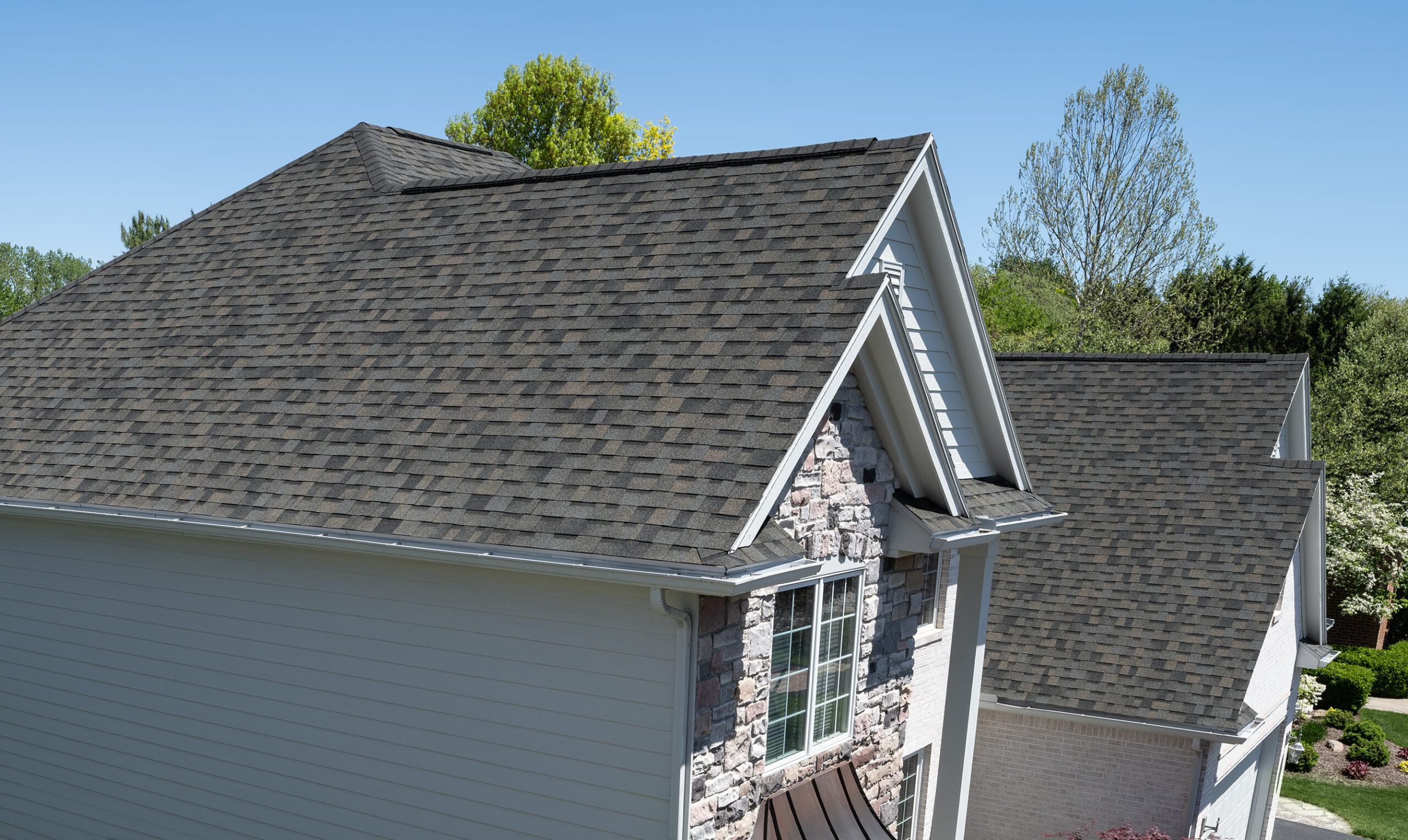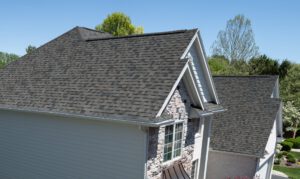What Is Residential Roofing?

Residential Roofing Columbus GA is the type of roof that covers single-family homes. It serves to protect the occupants and contents of houses from rain, snow, wind, and sunlight.

Choosing the right residential roofing material depends on climate, architectural style, and budget. Asphalt shingles are the most common and affordable choice, but they may have a shorter lifespan than other materials.
Residential roofing is an umbrella term that refers to roof services for structures designed for people to live in, most notably houses. There are several different types of residential roofing, each with its own unique set of benefits and drawbacks. Some of the most common types of residential roofing include asphalt shingles, metal, tile, and wood shakes. Each type of roofing material has its own unique qualities and requires different maintenance procedures.
When choosing a residential roofing material, homeowners must take into account the weather conditions and architectural style of their house. They must also consider the budget and maintenance requirements of the roof. Moreover, the roof must be durable enough to withstand any damage caused by natural elements or heavy rains.
The design of a residential roof determines its overall appearance, which can influence the overall look and feel of the house. For example, a wood roof can give the home a rustic look, while a metal roof can give it a modern touch. Some roofs may feature gables and dormers for added architectural appeal.
Some homeowners prefer flat roofs for their durability and ease of maintenance, while others opt for sloping designs for aesthetic value. A sloping roof can also offer better water drainage and ventilation, which can help reduce utility bills. Some roofs feature an m-shaped structure that can add more space to the home and provide plenty of windows for natural light.
The roof structure consists of rafters, trusses, or beams that form the shape and support the final roofing material. Most residential roofs are made from lumber, whereas commercial buildings typically use steel. The roof structure defines the slope of the roof as well as the amount of insulation needed to regulate indoor temperatures and prevent moisture buildup.
Materials
Whether you are building a new home or replacing an existing roof, the choice of roofing materials will determine the appearance and functionality of your house. It will also impact the overall cost of the roof and how well it protects your home from water damage, mold growth, and pests. There are many different roofing products available, from asphalt shingles to clay tiles. In addition, there are synthetic options such as rubber and plastic that mimic the color, texture, and strength of other materials.
The most popular and affordable residential roofing material is asphalt shingles. It comes in three styles: 3-tab, architectural, and luxury asphalt shingles. 3-tab shingles are thinner and less expensive than architectural shingles, but they do not hold up well to high winds or storms. Architectural shingles are thicker and designed to create a textured look to your roof, and they last 15 to 30 years. They are more expensive than 3-tab shingles but still offer good value for your money.
Metal is another popular roofing material. It is durable and can withstand severe weather conditions, including strong winds, hail, snow, rain, and lightning. It is available in a variety of colors and patterns and can be used to accent your home’s architecture. Steel and aluminum panels are lightweight and resist rust and corrosion. They are also fire-resistant and do not attract insects.
For an upscale roof, clay tiles can enhance the beauty of any style of home. These durable and long-lasting tiles date back 5,000 years to glazed earthenware rooftops. They are fire-resistant, invulnerable to rot, and easy to maintain. Slate is another sophisticated roofing option, but it comes with a higher price tag and requires a skilled installation team.
Installation
Residential roofing is a type of roofing that fits homes and structures built by homeowners. It is a more complicated and time-consuming process than commercial roofing, as the roof needs to be designed specifically for the house in order to ensure that it withstands weather conditions. It also has to conform to local building codes and regulations. Moreover, it needs to be aesthetically pleasing and blend in with the architectural style of the home. In addition, the roof must also be functional and meet environmental and fire safety standards.
There are many different types of residential roofing materials, each with its own benefits and drawbacks. The most common type is asphalt shingles, which are affordable and easy to install. However, they may not be as durable as other options. Another popular type is wood shakes, which offer a natural aesthetic and are resistant to insect infestation. However, they are not suitable for all climates and require regular maintenance.
Other types of residential roofing include tile and metal. Tile roofing is durable and fireproof, while metal roofs are able to withstand strong winds. In addition, there are also eco-friendly roofing options that use recycled materials. These types of roofs are becoming increasingly popular.
In addition to the roof material, the design of a residential roof must take into account the size and layout of the home. The roof structure is usually made of rafters or trusses, which are then covered by the final roof covering. A residential roof must be able to support the weight of the house and any mechanical equipment that is installed on it.
In addition to regular maintenance, a residential roof requires routine inspections to identify and repair problems. It is also important to keep gutters clean and downspouts open to prevent debris buildup, which can lead to water leaks and ice dams. Finally, a residential roof must be properly ventilated and insulated to control indoor temperatures and reduce energy costs. Keeping the roof in good condition will help protect the rest of the home from damage and prolong its lifespan.
Maintenance
Residential roofing is a vital barrier between a family and the elements. Not only does it protect against the obvious dangers of weather events or falling tree branches, but it also keeps a house warm and prevents excess moisture, which could lead to mold. It is important to maintain a home’s roof to extend its life and protect the home from costly repairs or replacement in the future. To do this, routine inspections should be performed to identify any potential problems, such as leaking or damaged shingles. It is also important to ensure that the insulation is adequate and that the downspouts are clear of debris to allow for proper water drainage.
A number of different roofing materials are available to homeowners, each with their own benefits and drawbacks. Asphalt shingles are the most common type of residential roofing and are affordable, durable, and easy to install. They also come in a wide range of colors and styles to match any aesthetic. However, they have a shorter lifespan than some other roofing materials and may need to be replaced more frequently.
Wood shakes offer a rustic, natural aesthetic that many homeowners enjoy. They require more maintenance than other roofing materials and must be inspected regularly for rot or insect infestations. In addition, they are not appropriate for all climates and may need to be treated with fire-retardant chemicals.
Metal roofs are enjoying a resurgence in popularity with consumers. They are durable and can withstand harsh weather conditions. They are also energy efficient and provide a sleek appearance that can enhance the curb appeal of a home. However, metal can be expensive to install and may need to be coated with fire-retardant chemicals.
When hiring a roofing company, it is important to ask about their experience and training. Residential roofing contractors should have a strong understanding of the various roofing materials and installation techniques. They should also be able to explain their warranty policy and provide references. Additionally, they should be able to discuss safety procedures and clean-up methods.
All roofs require regular maintenance to extend their life and improve their performance. A professional specializing in residential roofing will have the skills and tools to inspect and repair all types of roofs. They will also be able to recommend the best type of roof for each homeowner’s needs.
